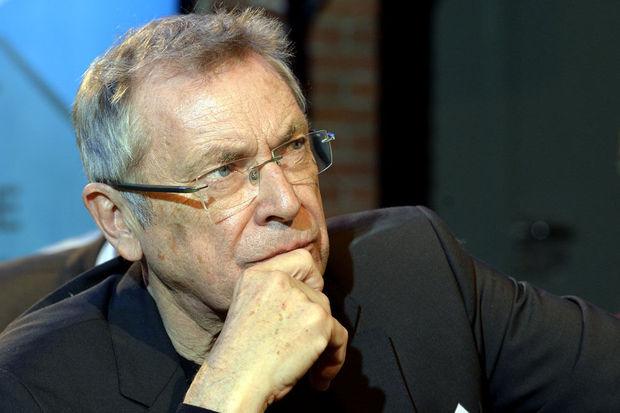Some academics who are ‘concerned about awakening activism and canceling culture’ group under the name Hypatia. Sociologist Mark Elchardus (VUB) also joined the collective. “Complaints will be carefully investigated.”
According to academics, it is suspension from two UAntwerp employees last summer who made the bucket overflow. According to Chancellor Herman Van Goethem, the two had made “unacceptable statements”, including about students of Moroccan descent. However, critics of the suspensions insist the employees were not aware they were being filmed. The images are distributed illegally. Meanwhile, Van Goethem reports in the Dexterityboth back to work.
For linguist Astrid Elbers and attorney Leo Neels, who had started a petition for employees, the incident was the reason Hypatia was founded. The collective describes itself as a group of academics who are ‘concerned about the threats to academic freedom and freedom of expression posed by built-up activism and a culture of cancellation’.
Read more below the article
safe room
In a opinion piece for Dexterity collective points on incidents surrounding the lecture series on trans people at UAntwerp. The idea popped up criticsamong others through the selection of sources, the use of words in the posters and the pictures used.
According to members of Hypatia, the incident “shows how universities trample freedom of expression and academic freedom in their frenetic attempts to safe room want to be ‘.
This collective is wider than the university of Antwerp alone. Core members include criminologist Marc Cools (UGent), vascular surgeon Dimitri Aerden (VUB) and Paul Cliteur from Leiden University. The latter is known in the Netherlands as former senator (but still a sympathizer) of the extreme right-wing Forum for Democracy Thierry Baudet, who conspiracy theory influence on Dutch politics.
Sociologist Mark Elchardus (VUB) also pledged his support to Hypatia. ‘Here in our country too, we are receiving signals that worry us about academic freedom. We want to warn against what is possible, but also have ambitions to develop into an initiative that people can use when they feel that their freedom is being restricted.’
Flashy: on the Hypatia website, visitors can also go to a hotline. “Would you like to report the awakening incident?” so he said. Or do you have any other questions or comments? You can do it here.’
Such a thing may not be without controversy – critics would quickly see it as a sort of ‘click line’. However, according to Elchardus, the hotline which in practice has not been formed is a ‘starting point’. Complaints will be carefully investigated. The goal is for us to learn from it: how can we create procedures that guarantee academic freedom?’
Read more below the article
Language and literature
According to Walter Weyns (UAntwerp), sociologist and author Who woke what?, this grouping is by no means the first of its kind. ‘Also come in Dutch, France, Great Britain and the United States have formed organizations of people concerned with academic freedom.’ Hypatia is explicitly American by nature heterodox academywhich was co-founded by renowned social psychologist Jonathan Haidt.
Weyns could understand Elchardus and co’s motives. ‘There is no real organized movement that wants to curtail academic freedom, but there is a sense that it is more difficult to talk about sensitive topics nowadays. It threatens the essence of the academic atmosphere: open-mindedness.’
Just this week, controversy emerged at the University of Amsterdam about the statements of a social scientist. In a opinion piece for the university’s magazine, she referred to non-binarity (not choosing either a boy or a girl as a gender identity) a ‘pseudo-scientific phenomenon’ and an ’empty sensation’. Universities are distancing themselves from employee statements, some students ask suspension.
According to sociologists, the pressure mainly comes from the younger generation. ‘Through their use of the media they received much input from the Anglo-Saxon world, where identity debates were more intense. This quickly became evident in disciplines such as Language and Literature, where there was increasing criticism of the canon, which was said to be too feminine, colorful, or non-binary.’
Apart from understanding the group, Walter Weyns also had his doubts about Hypatia. ‘There is a good chance that the lineup will now close and some sort of formation or party stickiness will emerge. The risk of deaf conversation increases. It’s a naive point of view, but let’s try to hear each other out first.’

“Hipster-friendly creator. Music guru. Proud student. Bacon buff. Avid web lover. Social media specialist. Gamer.”







